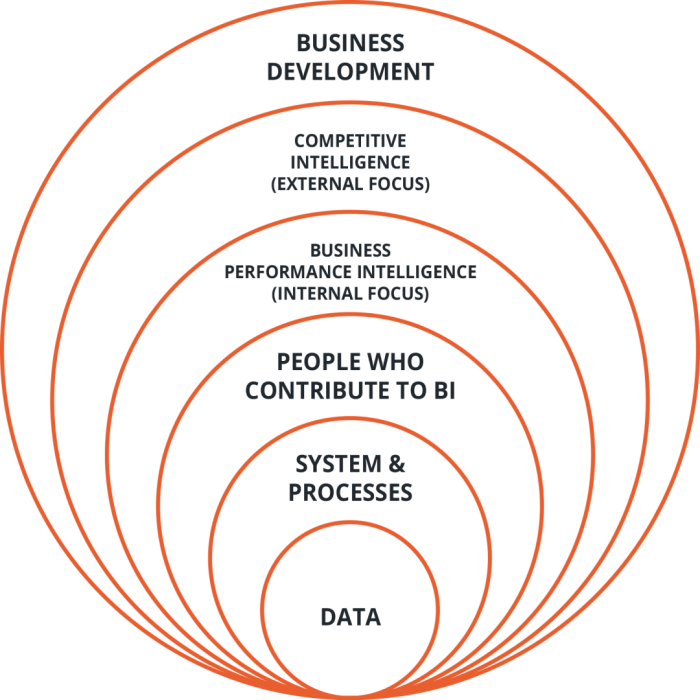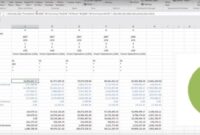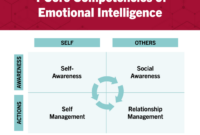Business intelligence responsibilities encompass a wide range of critical functions that empower organizations to make data-driven decisions. From data analysis and interpretation to reporting and visualization, BI professionals play a pivotal role in transforming raw data into actionable insights that drive business success.
As the volume and complexity of data continue to grow, the demand for skilled BI professionals is soaring. These individuals possess the expertise to extract meaningful patterns and trends from vast datasets, enabling organizations to identify opportunities, mitigate risks, and optimize their operations.
As a business intelligence professional, you have a lot of responsibilities. You need to collect data, analyze it, and present it in a way that is easy to understand. This can be a time-consuming and complex process, but it is essential for making informed decisions.
Fortunately, there are now tools available that can help you automate many of your tasks. Business intelligence automation can save you time, improve your accuracy, and help you make better decisions. By automating your tasks, you can focus on the more strategic aspects of your job, such as developing new insights and identifying trends.
Business Intelligence Responsibilities: Core Functions
Business intelligence (BI) professionals play a crucial role in helping organizations make informed decisions by analyzing and interpreting data. Their core functions include:
- Collecting and organizing data from various sources
- Analyzing data using statistical and data mining techniques
- Identifying trends and patterns in the data
- Developing reports and visualizations to communicate insights
- Working with stakeholders to understand business needs and translate them into data-driven solutions
Data Analysis and Interpretation, Business intelligence responsibilities

BI professionals use a variety of methods and techniques to analyze and interpret data, including:
- Statistical analysis: Using statistical methods to identify patterns, trends, and relationships in the data
- Data mining: Using algorithms to extract hidden insights and patterns from large datasets
- Machine learning: Using algorithms to train models that can make predictions and identify anomalies
- Natural language processing (NLP): Using techniques to analyze and interpret unstructured data, such as text and speech
By analyzing and interpreting data, BI professionals help organizations understand their customers, optimize their operations, and make better decisions.
Reporting and Visualization
BI professionals are responsible for presenting data in a clear and concise manner that is easy for stakeholders to understand. They use a variety of reporting and visualization tools, including:
- Dashboards: Interactive dashboards that provide a real-time view of key performance indicators (KPIs)
- Reports: Static reports that provide detailed analysis and insights on specific topics
- Charts and graphs: Visual representations of data that make it easy to identify trends and patterns
By effectively reporting and visualizing data, BI professionals help stakeholders make informed decisions and take action.
Summary

In conclusion, business intelligence responsibilities are essential for organizations seeking to leverage data for competitive advantage. BI professionals serve as strategic partners,
providing valuable insights that inform decision-making, improve operational efficiency, and drive innovation. As technology continues to advance and the data landscape evolves, the role of BI will only become more critical in the years to come.
As a business owner, understanding your business intelligence responsibilities is crucial. It involves collecting, analyzing, and interpreting data to make informed decisions. For more advanced solutions, consider business analytics and business intelligence solutions. These tools can help you optimize operations, identify trends, and gain a competitive edge.
By leveraging data, you can enhance your business intelligence capabilities and drive growth.
Commonly Asked Questions: Business Intelligence Responsibilities
What are the core functions of business intelligence professionals?
Business intelligence responsibilities involve gathering, analyzing, and interpreting data to make informed decisions. To optimize these responsibilities, consider implementing business intelligence best practices , such as establishing clear goals, using the right tools, and fostering a data-driven culture.
These practices empower businesses to leverage data effectively, driving better decision-making and improved business outcomes.
Business intelligence professionals are responsible for analyzing data, identifying trends, and providing insights that help organizations make better decisions. They work with stakeholders to understand business needs and develop BI solutions that meet those needs.
What methods and techniques do BI professionals use to analyze data?
BI professionals use a variety of methods and techniques to analyze data, including statistical analysis, data mining, and machine learning. They also use visualization tools to present data in a way that is easy to understand and interpret.
How do BI professionals ensure that data is presented effectively and actionable?
BI professionals use a variety of reporting and visualization techniques to ensure that data is presented effectively and actionable. They work with stakeholders to develop reports and visualizations that are tailored to the specific needs of the audience.




